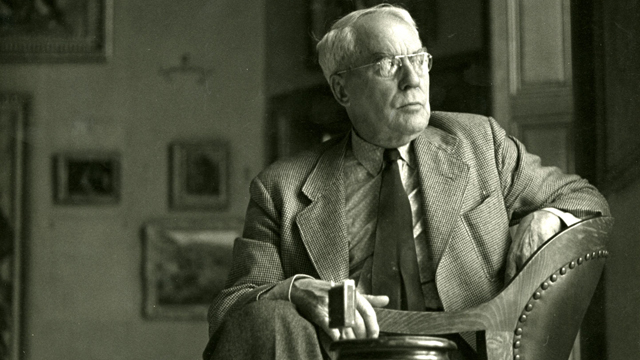PBS Doc On The Barnes Collection Avoids The Controversy
By Steven Pate in Arts & Entertainment on Jul 31, 2012 3:00PM

Last July, PBS Ombudsman Michael Getler called out the arts-focused network for its silence on one of the biggest stories in the art world: the acrimonious relocation of the treasured Barnes Collection to downtown Philadelphia. Getler went so far as to note that two important PBS backers, the Pew Charitable Trust and the Annenberg Foundation, were involved in the controversy. A year later a new WHYY documentary is set to tell the story of the Barnes on PBS. There's just one thing: there is still no mention whatsoever of the bitter and public fight. And we’re not sure that it matters.
Albert C. Barnes made a ton of money manufacturing a compound of silver and protein widely used to treat gonorrhea in the early part of the 20th century. He then used that fortune to amass a renowned collection of art, hang it all up in a delightfully idiosyncratic fashion in a tony suburban house he had built for the purpose, and promote a democratized notion of arts education in his own irascible manner. As a collector, Barnes was both ahead of his time, with an appetite for French impressionist and early modern art now seems like prescience, and out of step—or at least out of sync with an art world whose historical conventions he had no use for. He hung his masterpieces up in eye-catching, harmonious but nontraditional ways, filling up walls with bold juxtapositions and punctuating empty spaces with furniture and smaller works of wrought iron. It was beautiful and absolutely unique, a testament to both his taste and disregard for convention.
Barnes’ will stipulated that every work hang exactly where it was when he died, and after a time the Barnes Foundation in its decidedly residential locale became as famous for how its treasures were displayed as for the treasures themselves (famously more Cezannes than in all the museums of Paris, 181 Renoirs, etc.). That these works could only be shown two or three days a week in conditions that some argued did not keep up with the standards of museum exhibition as they had evolved since the 1920s meant there was a persistent drumbeat for relocating them somewhere more modern, along with persistent clamoring that moneyed interests were trying to break up or commodify the collection in violation of Bares’ wishes.
With the entire collection worth an estimated $20-$30 billion, the stakes in the battle for the Barnes Collection were high. Did Barnes’ ability to purchase these art works (and provide for a foundation to look after them indefinitely) mean that his desired way of displaying them trumped all other concerns? Was this all an attempt to make more money by shoveling as many people through the front door as possible? Anyone interested in the acrimony of this scandal as laid out by the plaintiffs can check out a much talked-about documentary on it from 2009, The Art of the Steal.
With a new home for the Barnes having opened two months ago, this turbulent water now seems decidedly under the bridge, judging by the hour-long WHYY special on the Barnes Foundation set to air Friday as part of the PBS Summer Arts festival. Using his correspondence and a voice actor reading his words, The Barnes Foundation lovingly tells Barnes’ life story. The documentary does a good job of making you want to visit the new Barnes, a museum that attempts to preserve the way the art works were hung but in a much larger space, and which has gotten decent to good reviews. Even if it failed to enthuse the two Philadelphia artists we asked about it, few will argue that a modern facility won’t be better for the preservation of the works themselves. Perhaps the fact that the entirety of the time between Barnes’ death and the opening of the new Barnes Foundation museum in May is passed over in a single hurdle should not be held against it. That story has been told. Nobody said you had to hang up the ugly stuff next to all the pretty things: this is curation, not therapy.
The Barnes Foundation airs Friday, August 3 at 9 p.m. on PBS.